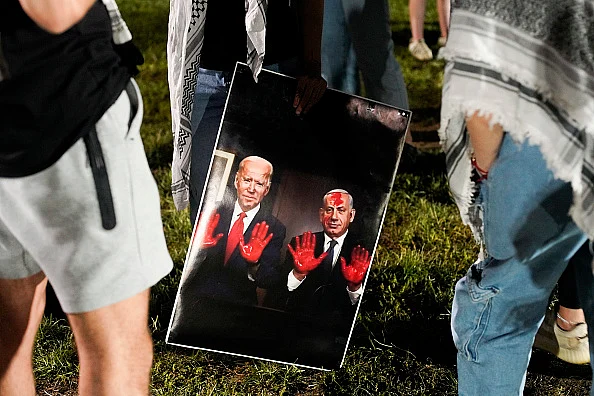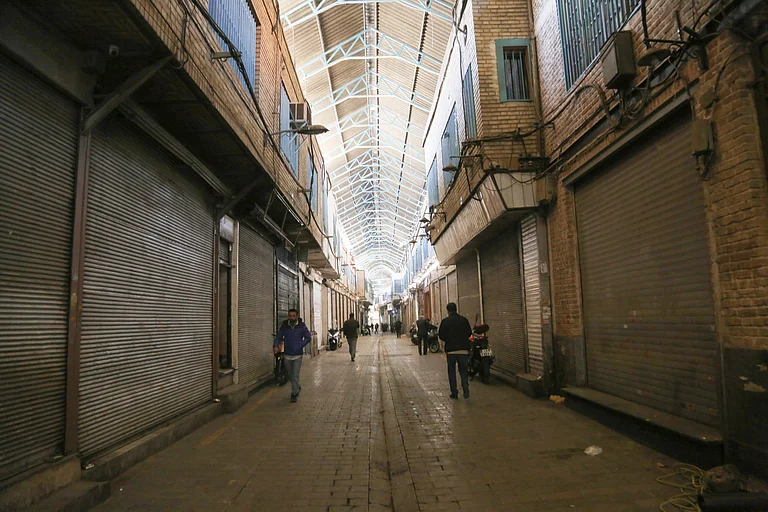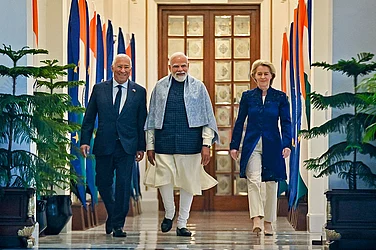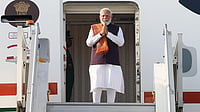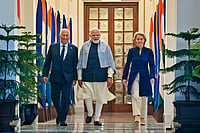
The ceasefire continues to elude war-torn Gaza. According to recent developments, Israel’s military operation in Rafah has affected ceasefire negotiations with Hamas, leading to talks not taking shape, as confirmed by mediator Qatar. “Especially in the past few weeks, we have seen some momentum building but unfortunately things didn’t move in the right direction and right now we are on a status of almost a stalemate,” Prime Minister Sheikh Mohammed bin Abdulrahman bin Jassim Al Thani told the Qatar Economic Forum. This piece was written in the early stages of Israel's offensive on Rafah on May 6.
Defying US' advice Prime Minister Benyamin Netanyahu had gone ahead with military operations to take control of the Palestinian side of the Rafah border crossing with Egypt, opening another front in the Gaza war. This at a time when there was a sliver of hope that peace talks sponsored by Qatar and Egypt with the US overseeing the proceedings could end the over seven-month war in Gaza.
When Hamas announced a few weeks back that they would accept the Israeli proposals there was spontaneous celebrations on the streets of Rafah. But that was short lived with Israel saying that the agreement had been tweaked and did not reflect what it had earlier agreed on. There was no question of a peace deal with Hamas.
Wasting no time, the IDF ordered 100,000 people huddled in Rafah as the only safe zone in Gaza, to evacuate to an Israeli designated safe zone. Soon afterwards the Rafah crossing was taken over by Israel.
Securing the Rafah crossing according to both Prime Minister Benyamin Netanyahu and defence minister Yoav Gallant gives Israel strategic leverage in completely eliminating the Hamas fighters and securing the release of the remaining Israeli hostages. Despite tremendous pressure from the international community, Netanyahu is in no mood to halt the war at a time when his army is keen to wipe out Hamas and ensure it is no longer capable of launching another October 7-like attack on Israel. Whether destroying Hamas while continuing to suppress the legitimate rights of Palestinians to a state of their own will enhance Israel’s security is open to question. Israel’s high-stake military brinkmanship is in the belief that the US will finally come round and be persuaded to go along with Netanyahu’s move.
The Israeli Defence Forces (IDF) have not yet launched a full ground invasion, a tank brigade was sent in to take control of the crossing. The closing of both the Rafah and Kerem Shalom crossing through which aid trickles into Gaza is accentuating the already dire humanitarian crisis. UN Secretary General António Guterres has warned that a full-scale invasion of Rafah would be catastrophic. Israel is continuing its aerial bombardment of selected sites in Rafah.
Despite all this Washington continues to be optimistic and push for peace talks is on. Israel has sent in an official delegation to Egypt. Much will depend on the US and whether President Joe Biden has the stomach to go against Israel. America is the only country that can apply pressure to bring Netanyahu change his stand. Diplomatic pressure is continuing. But diplomatic pressure is not enough. What is needed is for Biden to stop arms shipment to Israel. That will make Netanyahu blink. But is Biden prepared to go so far?
Yes, there are reports in the US media that the administration has held up the delivery of Joint Direct Attack Munitions to pressure Israel not to go ahead with a Fatah invasion. But this is a drop in the ocean and will make no difference on the ground.
Will Biden have the gumption to stop all arms sale to Israel in the next couple of weeks or months is the question? Without American arms Israel is in no position to continue the war indefinitely. Stopping arms flow will make Israeli hardliners as well as the more pragmatic Netanyahu re-think their current adamant position.
Biden is caught in a bind, more or so because of the Presidential elections in autumn. Since October 7, he has provided Israel with iron-clad support. But the devastation of Gaza and the killing of civilians including women and children, the warnings of a full-blown famine and the plight of the people has led to outrage among young Americans. The campus strikes may not have the backing of the entire country, but they have helped to focus on the plight of civilians and demands for a ceasefire. The students and young people, include Arab Americans and African Americans are part of the Democratic vote bank and cannot be totally ignored in a tight race. Many within the progressive wing of the party, including Senator Bernie Sanders have not minced words in criticizing Biden’s unflinching support of Israel’s war crimes in Gaza.
Yet the vast majority of Americans, including much of the liberal media support Israel and believe Netanyahu’s action against Hamas is justified. Biden’s best option is to get a ceasefire in place and stop the war, at least for now. The White House has been working at a frenetic pace to get a deal through. Secretary of state Antony Blinken was in the region recently talking tall, concerned parties including Israel, Egypt, Qatar, Saudi Arabia and others to get a ceasefire and a peace plan moving. CIA chief William Burns is also there at the moment working on getting both sides on the negotiating table. Hamas has said that a ground invasion of Rafah is a deal breaker.
Netanyahu is also under pressure, both at home and abroad. Demonstrations continue in Tel Aviv for bringing home the hostages. The protests are growing yet it has not reached an inflection point that could induce Netanyahu to be more flexible. At the same time his hardline coalition partners see this as an opportunity to break Hamas and be in a position to grab more land from the Palestinians.







